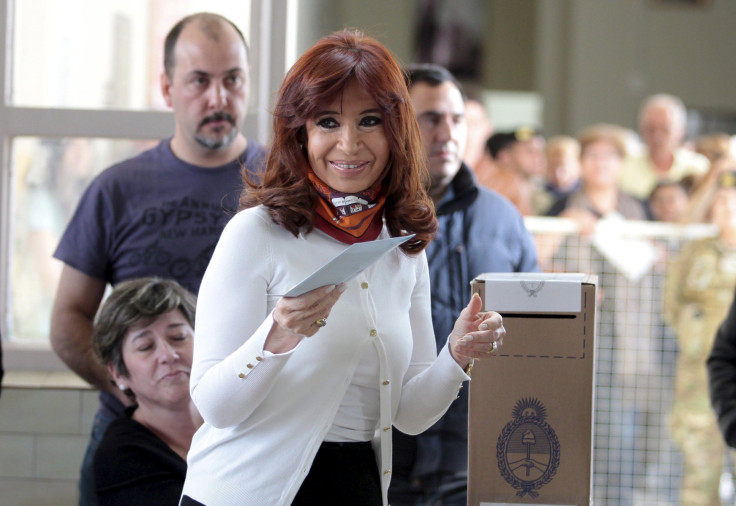
Argentina’s Sunday election ended with margins so thin that the top two candidates will head to a special Nov. 22 runoff . Peronist (center-left) favorite Daniel Scioli won 35.7 percent of the vote, while his opponent Mauricio Macri (center-right) won a surprising 35.3 percent. Addressing his supporters following what amounted to a victory for his center-right coalition, the Buenos Aires Mayor Macri told his supporters that the unexpected outcome marked a significant shift in Argentine politics.
"What happened today will change politics in this country,” Macri said, according to the BBC.
What happened on Sunday was certainly exciting for watchers of Latin American elections, of which there were three on Sunday. Guatemalans and Haitians also went to to the polls.
Peronist candidates have held the presidency almost exclusively since 1990 (aside from a half-term in 1999). That could change as enthusiasm fuels Macri’s bid as an outsider candidate challenging a political dynasty.
Scioli was expected to win the election and even declared victory before the final results were in. But Macri’s supporters turned out in greater force than expected. The Nov. 22 election appears to be anyone’s game and the candidates are expected to campaign harder than ever in the coming weeks.
Following the news of a runoff, Scioli reached out to independents and undecided voters.
Inmensamente feliz por la gobernadora que va a tener la provincia de Buenos Aires @mariuvidal pic.twitter.com/hG1Eyeqqfv
— Mauricio Macri (@mauriciomacri) October 26, 2015Macri is already touting his momentum, holding up Sunday’s tie as a relative victory for his presidential bid.
Inmensamente feliz por la gobernadora que va a tener la provincia de Buenos Aires @mariuvidal pic.twitter.com/hG1Eyeqqfv
— Mauricio Macri (@mauriciomacri) October 26, 2015Will Scioli fall victim to the inertia felt by the center-left and far-left political parties across Latin America? With so many victories at the polls in the past decade, left-wing governments in Brazil, Venezuela, Ecuador and Bolivia are bearing the political brunt of long-term governance.
As the parties in charge, they hold a perceived responsibility for those countries’ problems and challenges from outsiders promising reform. In Argentina, those problems can be summarized a single word: inflation. Government analysts say that inflation is 14.4 percent, though outside analysts argue it’s closer to 25 percent, according to Reuters. Both candidates have promised to bring inflation down.
Whoever wins the Nov. 22nd election will be sworn in on Dec. 10. They’ll be the first Argentine head of state without the name Kirchner since 2003, and the first to be chosen in a runoff election in the country’s history.
© 2025 Latin Times. All rights reserved. Do not reproduce without permission.




